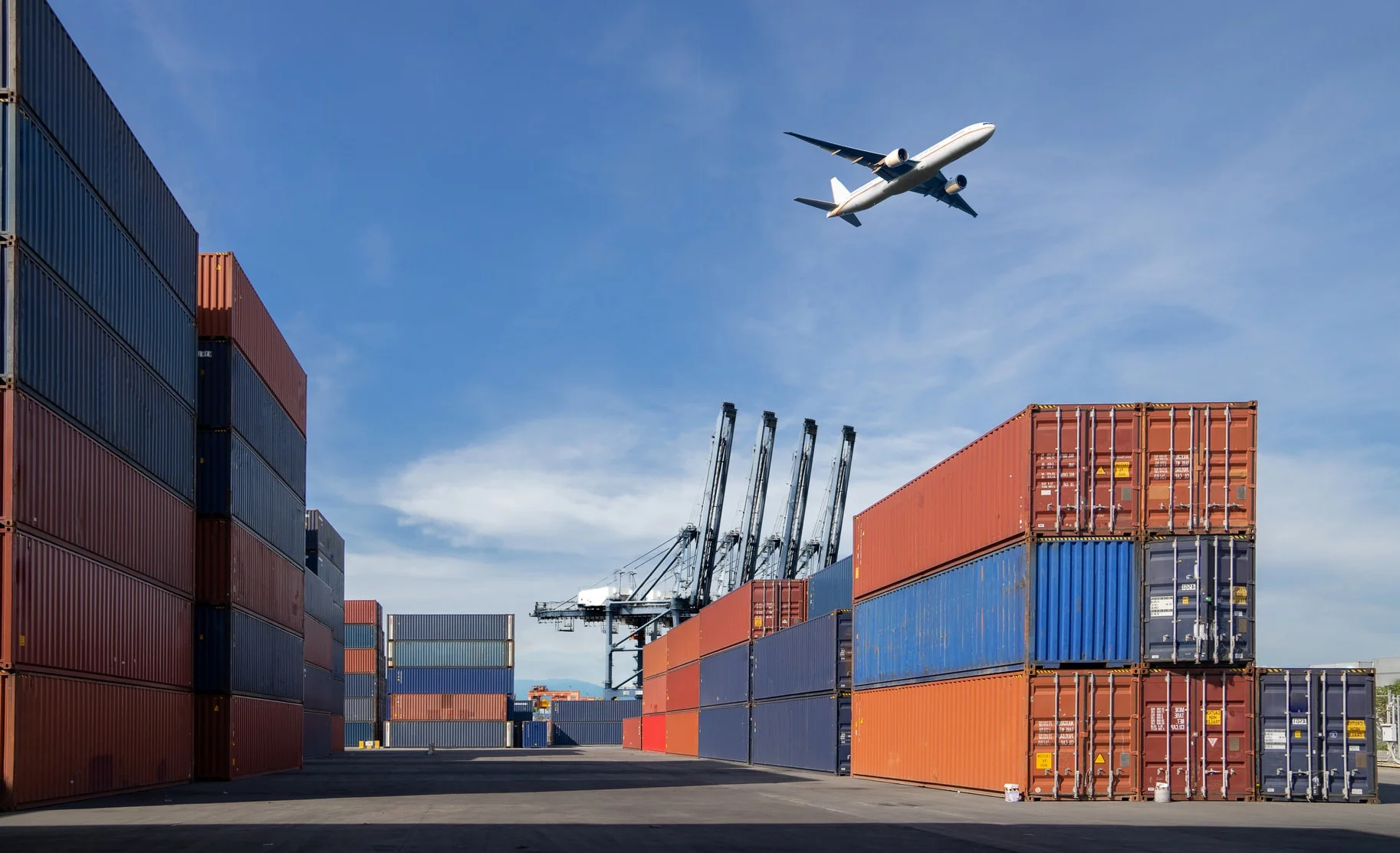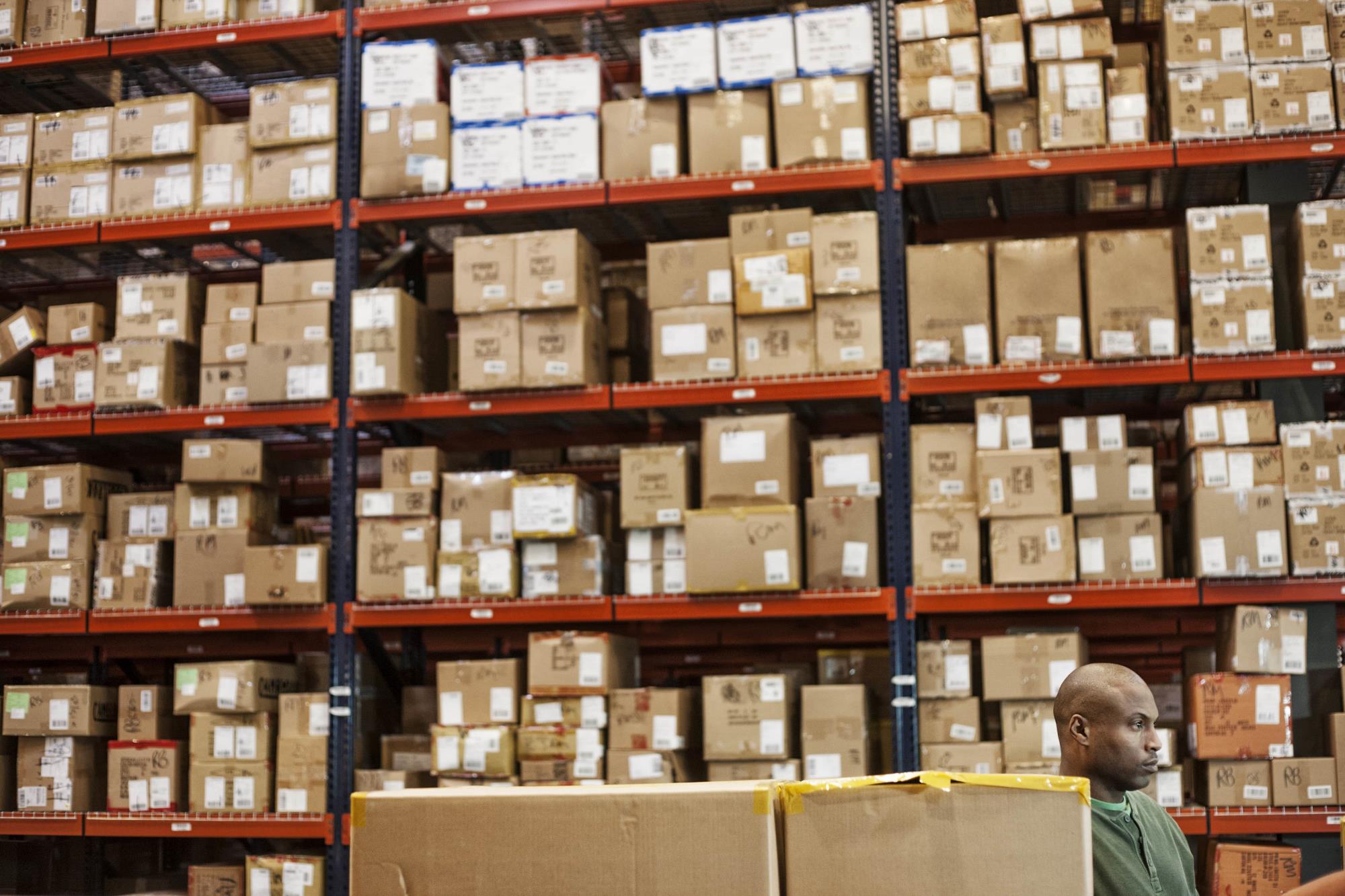Our Services
Exceptional
Service,
Great Value -
We Deliver
Independent Freight Forwarder
Based in the South West of England
Our Mission
To consistently deliver a positive and reliable experience to every client we serve. We are dedicated to providing exceptional value and unmatched customer service in the marketplace while setting the standard for professionalism in the logistics solutions we offer. Through our commitment to excellence, we strive to exceed expectations and build lasting partnerships with our clients.
Industries we work
Our knowledgeable staff are able to assist you with a variety of services such as advice on Customs Classification, Customs Procedures and Documentary Requirements.

Healthcare

Agriculture

Manufacturing

Technology

Energy

Retail

Fashion

Shipping
F.A.Q
Everywhere! Radius Warehouse and Logistics offers comprehensive global logistics services, leveraging a network of agents, partners, and providers in every country. This approach allows us to provide seamless and efficient transportation solutions with a global reach, while maintaining localized expertise. Here's what this could mean for clients and businesses working with Radius Warehouse and Logistics:
- Global Presence: Our extensive network ensures they can coordinate shipments and logistics across international borders, providing a truly global service. This is especially beneficial for businesses that operate in multiple countries or need to move goods internationally.
- Local Expertise: Despite our global reach, Radius Warehouse and Logistics work with skilled professionals in local areas. This localized knowledge can be crucial for navigating regional regulations, customs, and transportation challenges.
- Trusted Partnerships: By working with a trusted group of agents, partners, and providers, Radius Warehouse and Logistics ensures a high level of service and reliability. These partnerships help in optimizing logistics processes, reducing costs, and avoiding delays.
- Comprehensive Services: With our broad network, we can offer a range of services, from freight forwarding to warehousing and distribution. This allows businesses to manage all their logistics needs through a single provider, streamlining operations.
- Customer-Centric Approach: The combination of global presence and local expertise enables Radius Warehouse and Logistics to offer personalized service to each client, understanding their unique requirements and providing tailored logistics solutions.
Overall, Radius Warehouse and Logistics' approach positions us as a versatile and reliable logistics partner, capable of handling complex global logistics with a personal touch.
Fulfillment is a crucial part of the supply chain, involving the process of receiving, processing, and delivering customer orders. Whether you're running an e-commerce business or a traditional retail operation, understanding the basics of fulfillment is key to ensuring customer satisfaction and operational efficiency. Here are the core components of fulfillment:
- Order Processing: This step involves receiving customer orders and processing them in a way that ensures accuracy and efficiency. It includes validating order details, checking inventory levels, and preparing orders for packing and shipping.
- Inventory Management: Effective inventory management ensures that you have the right products in stock to meet customer demand without overstocking. It involves tracking inventory levels, forecasting demand, and implementing strategies like just-in-time (JIT) inventory or safety stock.
- Warehousing and Storage: Fulfillment often requires warehousing where products are stored before being shipped. Key elements include warehouse layout, storage systems, and procedures for organizing and retrieving products quickly.
- Picking and Packing: Picking involves selecting the correct items from inventory to fulfill an order. Packing entails placing those items in appropriate packaging for shipping. This step requires attention to detail to avoid errors and damage during transit.
- Shipping and Logistics: Once orders are packed, they need to be shipped to customers. This involves selecting the best shipping method (e.g., courier, postal service, freight), managing shipping costs, and providing tracking information to customers.
- Returns and Exchanges: A good fulfillment process includes handling returns and exchanges efficiently. This involves creating a straightforward process for customers, restocking returned items, and managing any associated costs.
- Customer Communication: Effective communication with customers is essential throughout the fulfillment process. This includes order confirmations, shipping updates, and tracking information. Clear communication helps build trust and can improve customer satisfaction.
- Technology and Automation: Leveraging technology can streamline fulfillment processes. Tools like warehouse management systems (WMS), inventory tracking software, and order management systems (OMS) can automate tasks and reduce errors.
In summary, the basics of fulfillment cover a range of activities, from order processing and inventory management to warehousing, shipping, and customer communication. Success in fulfillment requires efficient processes, attention to detail, and a customer-focused approach.
Radius Warehouse and Logistic Services provides a range of services designed to meet the diverse needs of businesses involved in transportation, warehousing, and logistics. While the exact services may vary depending on the company's specific focus and customer requirements, here are some common services typically offered by us, at Radius Warehouse and Logistic Services:
- Warehousing and Storage: Radius Warehouse and Logistic Services provides secure and efficient warehousing solutions to store goods before distribution. This includes storage for a range of products, such as raw materials, finished goods, and retail inventory.
- Order Fulfillment: We offer order processing services, including picking, packing, and shipping customer orders. This service is crucial for e-commerce businesses and companies that require direct-to-customer shipping.
- Freight Forwarding: Radius can coordinate the transportation of goods across borders, working with various carriers and managing customs documentation to ensure smooth international shipping.
- Transportation and Distribution: We can organize the transportation of goods from one location to another, utilizing different modes of transport (road, rail, sea, or air) and managing the logistics of distribution.
- Inventory Management: Radius Warehouse and Logistics helps manage inventory levels, ensuring that clients have the right amount of stock to meet demand while minimizing excess inventory.
- Customs and Compliance: The company handles customs clearance and compliance with international trade regulations, reducing the risk of delays or legal issues during shipping.
- Cross-Docking and Transloading: We offer cross-docking services to streamline the movement of goods from one mode of transport to another without extensive storage. Transloading services are also available for transferring goods from one container or vehicle to another.
- Returns Management: Radius helps manage returns and reverse logistics, providing efficient processes for handling returned goods, restocking, and redistributing them.
- Value-Added Services: These may include labeling, kitting, or assembly, which add value to the products before they reach the end customer.
- Consulting and Advisory Services: We offer consulting services to help businesses optimize their supply chain, logistics, and transportation strategies.
3PL stands for "Third-Party Logistics." It refers to a business arrangement where a company outsources its logistics and supply chain management functions to a third-party service provider. 3PL providers offer a variety of services designed to streamline and manage logistics processes for their clients, allowing companies to focus on their core business activities. Here's a breakdown of what 3PL typically encompasses:
- Warehousing: 3PL providers often offer warehousing services, including storage, inventory management, and order fulfillment. This allows companies to store their products in a secure location without having to maintain their own warehouse facilities.
- Transportation: 3PL providers manage the transportation of goods, whether it's through trucking, shipping, rail, or air. They can coordinate the movement of products from manufacturers to distribution centers, retail locations, or directly to customers.
- Freight Forwarding: This involves coordinating the shipping of goods across borders, handling customs documentation, compliance, and working with multiple carriers to ensure smooth international logistics.
- Order Fulfillment: 3PL providers can manage order processing, picking, packing, and shipping, which is especially useful for e-commerce businesses. They can also handle returns and reverse logistics.
- Inventory Management: 3PL providers help manage inventory levels, track stock, and provide real-time inventory data to their clients. This can aid in demand forecasting and reduce excess inventory.
- Value-Added Services: Some 3PL providers offer additional services like kitting, assembly, labeling, or product customization, adding value to products before they reach the end customer.
- Technology Solutions: Many 3PL providers offer advanced technology tools, such as warehouse management systems (WMS), transportation management systems (TMS), and real-time tracking, to enhance logistics operations and provide greater visibility into the supply chain.
3PL can be a cost-effective solution for businesses that want to focus on their core competencies while leveraging specialized logistics expertise. By outsourcing logistics functions to a 3PL provider, companies can benefit from economies of scale, improved efficiency, and reduced complexity in their supply chain operations.
UKWA stands for the United Kingdom Warehousing Association, a leading trade organization that represents the warehousing and logistics sector in the UK. It serves as a central point for industry stakeholders, offering resources, support, and advocacy for businesses involved in warehousing, logistics, and supply chain management. Here's an overview of what UKWA does and its key roles:
- Industry Representation: UKWA represents the interests of its members and the wider warehousing industry. It acts as a voice for the sector, engaging with government bodies, regulatory agencies, and other stakeholders to advocate for policies and regulations that support the warehousing and logistics industry.
- Networking and Collaboration: UKWA facilitates networking and collaboration among its members, providing opportunities for businesses to connect, share knowledge, and build partnerships. This is achieved through events, conferences, and industry meetings.
- Training and Education: The association offers training programs and educational resources to help industry professionals develop their skills and stay updated on the latest trends and best practices in warehousing and logistics.
- Industry Standards and Best Practices: UKWA promotes industry standards and best practices to ensure that members operate with a high level of quality, safety, and efficiency. It provides guidance on compliance with regulations and encourages continuous improvement.
- Research and Insights: UKWA conducts research and provides industry insights, helping members stay informed about market trends, industry challenges, and opportunities for growth. This information can guide business decisions and strategic planning.
- Member Services and Benefits: UKWA offers a range of member services, including legal advice, insurance, and support with business development. It also provides access to industry-related publications and resources.
- Recognition and Awards: The association organizes awards and recognition programs to celebrate excellence in the warehousing and logistics sector. This helps promote high standards and acknowledges the achievements of individuals and companies within the industry.
Overall, UKWA plays a significant role in supporting the warehousing and logistics industry in the UK, providing resources and advocacy to help its members succeed in a competitive market.
FHDDS stands for the Fulfilment House Due Diligence Scheme, a regulatory framework in the United Kingdom designed to ensure that fulfilment houses (warehousing and logistics providers that store and manage goods for overseas sellers) comply with tax and customs obligations. The scheme is primarily aimed at reducing VAT (Value Added Tax) fraud in cross-border e-commerce and preventing the importation of goods into the UK without proper tax and customs payments.
Here's what the FHDDS involves and why it's important:
- Purpose: FHDDS was established to combat VAT fraud and ensure that fulfilment houses that handle goods for non-UK sellers are taking appropriate steps to ensure their clients are compliant with UK tax regulations. The scheme helps HM Revenue & Customs (HMRC) identify and monitor businesses that may pose a risk to the UK's tax system.
- Who Must Register: Fulfilment houses in the UK that store, pack, or send goods on behalf of non-UK sellers must register with FHDDS. This includes businesses that perform these services as part of e-commerce operations or on behalf of other importers/exporters.
- Requirements for Registration: Fulfilment houses are required to demonstrate due diligence in their operations. This includes keeping accurate records of their clients, ensuring clients are properly registered for VAT (if required), and maintaining detailed information about the goods they handle.
- Compliance and Penalties: Registered fulfilment houses must comply with the obligations outlined in FHDDS, including maintaining proper records, conducting due diligence checks on clients, and cooperating with HMRC. Failure to comply with these requirements can result in penalties, suspension, or cancellation of FHDDS registration, which can impact a business's ability to operate.
- Benefits of Registration: Fulfilment houses that comply with FHDDS demonstrate to HMRC and their clients that they are operating within legal and regulatory frameworks. This can enhance business credibility and reduce the risk of legal issues or penalties related to VAT fraud or customs violations.
The Fulfilment House Due Diligence Scheme is part of the UK's broader efforts to ensure tax compliance in the growing e-commerce sector and to protect the integrity of the customs and tax system.
A Warehouse Management System (WMS) is a software solution designed to optimize and manage warehouse operations. It plays a crucial role in streamlining inventory control, order fulfillment, and overall warehouse efficiency. A WMS helps businesses track goods, manage inventory, organize storage, and coordinate warehouse processes. Here's a detailed overview of what a WMS is and its key functions:
- Inventory Management: A WMS tracks inventory levels in real-time, allowing businesses to monitor stock, reorder products when necessary, and maintain optimal inventory levels. It helps prevent overstocking or stockouts, leading to efficient warehouse management.
- Order Fulfillment: A WMS facilitates order picking, packing, and shipping processes. It helps warehouse staff locate products quickly, ensures accurate order fulfillment, and tracks the movement of goods within the warehouse.
- Storage Optimization: WMS software helps determine the most efficient storage locations for products, considering factors like product type, turnover rate, and size. It can suggest optimal storage configurations, making better use of available space.
- Receiving and Putaway: A WMS streamlines the receiving process, enabling accurate tracking of incoming shipments and guiding warehouse staff on where to store goods. It reduces errors and ensures products are stored in the correct locations.
- Warehouse Layout and Slotting: A WMS can help design warehouse layouts and slotting patterns to maximize efficiency. This includes optimizing the placement of goods for quick retrieval and minimizing travel time within the warehouse.
- Labor Management: Some WMS solutions offer labor management features, allowing businesses to track employee productivity, assign tasks, and optimize workforce scheduling. This can improve efficiency and reduce labor costs.
- Real-Time Tracking and Visibility: A WMS provides real-time visibility into warehouse operations, allowing managers to monitor processes, identify bottlenecks, and make data-driven decisions to improve efficiency.
- Integration with Other Systems: A WMS can integrate with other business systems like Enterprise Resource Planning (ERP), Transportation Management Systems (TMS), or Customer Relationship Management (CRM) software. This integration allows for seamless data flow and coordination across various business functions.
- Reporting and Analytics: A WMS provides reporting and analytics capabilities, enabling businesses to track key performance indicators (KPIs), analyze trends, and make informed decisions about warehouse operations.
Overall, a WMS is a powerful tool for businesses seeking to optimize warehouse operations, improve inventory control, and enhance order fulfillment processes. It can help reduce operational costs, increase accuracy, and improve customer satisfaction by ensuring timely and accurate delivery of goods.
Pick and pack is a critical process in warehouse and logistics operations, primarily used in order fulfillment for e-commerce, retail, and distribution. Here's what it entails:
Pick and Pack Definition
- Picking: This involves selecting individual items from inventory in a warehouse or distribution center based on customer orders. It typically involves warehouse staff using a picking list or system to locate and retrieve the items.
- Packing: Once items are picked, they are carefully packed into boxes or shipping containers for shipping. Packing includes adding protective materials (like bubble wrap or packing peanuts) to prevent damage during transit, labeling packages, and preparing them for shipping.
Detailed Steps
- 1. Order Receipt: An order is received and entered into the warehouse management system.
- 2. Picking: A picking list is generated that specifies the items to be picked, including their locations in the warehouse. Warehouse staff use this list to collect the required items.
- 3. Packing: The picked items are brought to a packing station, where they are placed in appropriate shipping containers. This step often involves checking for damage, adding protective materials, and verifying the order's accuracy.
- 4. Labeling: Shipping labels with customer details, tracking information, and other necessary data are applied to the package.
- 5. Shipping Preparation: The packed and labeled orders are moved to a shipping area, ready to be picked up by a carrier or delivered to a distribution point.
Importance in Logistics
- Efficiency: Pick and pack streamlines the process of fulfilling orders, allowing companies to quickly and accurately process and ship customer orders.
- Accuracy: By having dedicated picking lists and organized warehouse layouts, the process reduces errors in order fulfillment.
- Scalability: Pick and pack operations can scale with business growth, enabling companies to handle increased order volumes efficiently.
- Customer Satisfaction: Accurate and timely order fulfillment is critical for customer satisfaction, especially in e-commerce where quick delivery is expected.
Applications
Pick and pack is widely used in e-commerce, retail distribution, and third-party logistics (3PL). It is especially prevalent in companies that ship a high volume of small to medium-sized orders directly to customers or retail locations.
In summary, pick and pack is the process of selecting and packing items for shipment in a warehouse or distribution center. It is a core component of order fulfillment, ensuring efficiency, accuracy, and customer satisfaction in the logistics process


















